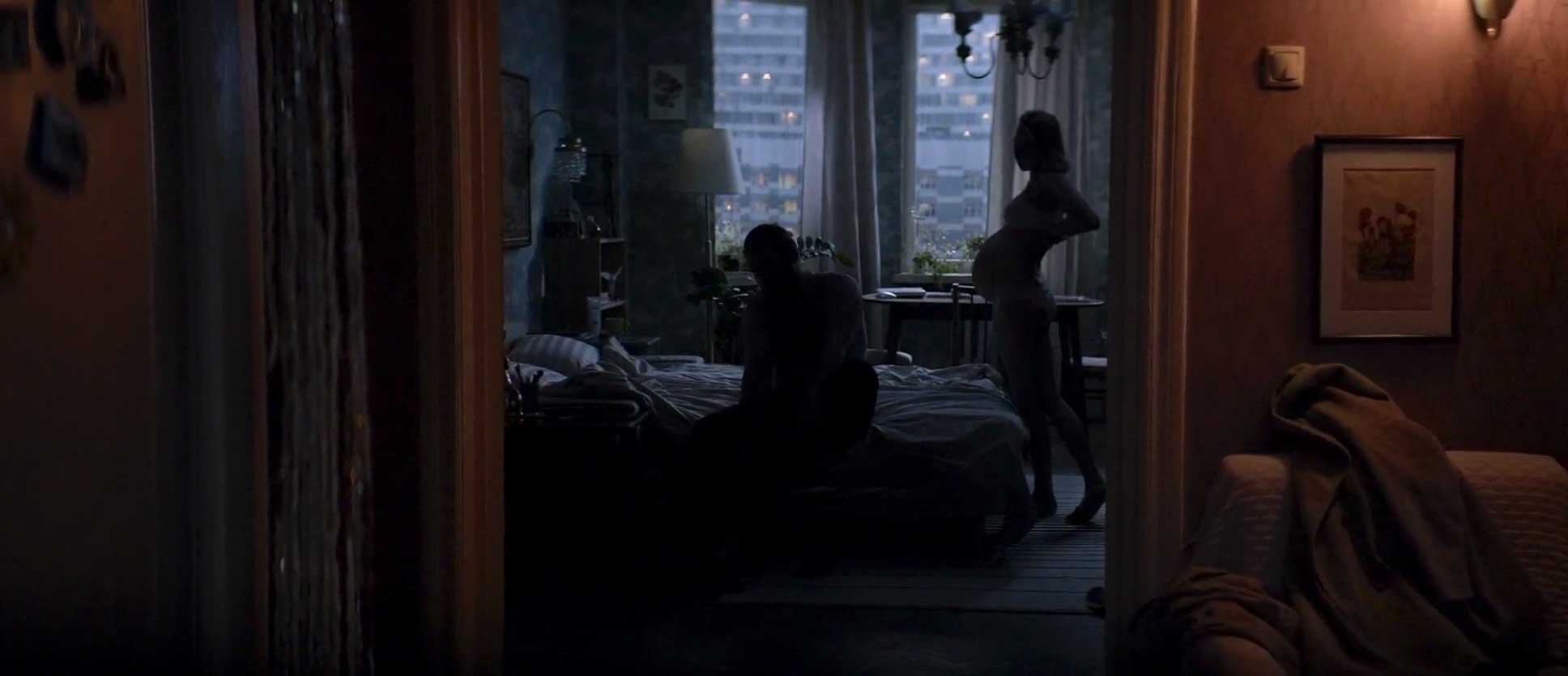What initially appears as a deeply cynical perspective on love seems to use the seductiveness of images of passion to develop a profound cinematic critique of romance.xxxxxxxxxxxxxxxxxxxxxxxxxxxxxxxxxxxxxxxxxxxxxxxxxxxxxxxxxxxxxxxxxxxxxxxxxxxxxxxxxxxxxxxxxxxxxxxxxxxxxxxxxxxxxxxxxxxxxxxxxxxxxxxxxxxxxxxxxxxxxxxxxxxxxxxxxxxxxxxxxxxxxxxxxxxxxxxxxxxxxxxxxxxxxxxxxxxxxxxxxxxxxxxxxxxxxxxxxxxxxxxxxxxxxxxxxxxxxxxxxxxxxxxxxxxxxxxxxxxxxxxxxxxxxxxxxxxxxxxxxxxxxxxxxxxxxxxxxxxx
Andrey Zvyaginstev's most recent (2017) film Loveless is a very well made film that, despite that it does deal with topics one might superficially think are depressing and would make one depressed about life, is surprisingly enjoyable and easy to watch (despite its close brush with pretentiousness). The long takes, the way the camera stays focused on a scene in which action eventually fills the frame, although reaching to the level of pretentiousness, manages to assert itself as the filmmaker's proper method for establishing a certain objectivity and tone to the film. And then there are the scenes that evoke a passionate love between two people that expresses itself in physical form, how two lives become one in these moments of total intimate involvement. They make one feel both comforted to know that such moments and experiences are possible between people, particularly in the context of this film where they act as counterpoints to the otherwise lovelessness of the main relationships that are its focus; but they also make one feel like they have been perhaps inadequate to life, that they may not have ever been able to achieve such moments of total honesty, of cold passionate, adult love with another person, even if they feel that they themselves have actually been in love.
Negative Analysis: a Cynical Philosophy of Love
It is always preferable to have the opportunity to write in alignment with a film, to build on what the film establishes rather than to take the position of a critic who only uses the film as an opportunity to articulate their own world-view1. And while it is true such a positive approach to this film may be entirely possible (see below: it is), it is the cynicism and pessimism of the film that is initially impossible to overlook. The problem, though, is that building positively on the film seems to require one to concede that life is, in fact, a loveless thing. One relationship falls apart, a child is sacrificed never to be found again, two new deeply passionate love and sexual relationships arise that carry each person conveniently at the same time out of their dead relationships, only to each fall apart themselves and return to the meaninglessness of the life each had sought to escape already once. Yes, life is hard, it is not easy, it is a constant struggle. Accepting, though, the perspective on life this film-maker would have us believe in also involves a certain kind of resignation from life. Deep love, deep-emptiness are all just parts of life, there is no possibility of escape from this endless recurring cycle. We are just human animals bound to endlessly repeat the same situations, drawn as we are from one situation to the next by our selfish need for passion and to feel ourselves experiencing 'real life', leaving a trail of destruction behind us.
The issue with this portrayal of life and of human beings is that it doesn't seem to believe in any kind of redemption from this base, profane world, that there is no transcendent dimension and truth in human life. There is no place in this worldview for the truth that arises through such an experience of life that leaves unforgettable marks in us, in our psyche, our memory, in our very being. In this film, the 'love' we see in the film exists only as pure passion, as two people whose lives mix only in the sexual domain, that their lives express completeness only through the happiness such closeness and playfulness with another human-being provides. We understand no way in which each of these relationships themselves support the full actualization of a human-being's potential in life: it is pure passion, desire for togetherness that these scenes of passion express. There is no deeper logic than the exploitation of the sexy gloss of the cinematic image, the beauty and irrefutable sex appeal of the naked pregnant woman in shadows getting into bed to have passionate sex with her 'lover'.

These scenes represent themselves as moments of pure passionate lovemaking and the fulfillment of a desire for life. Maybe only in the suspicion of the pregnant woman ('how many times have you been in love before?', she asks) do we get any indication that the film might imply a certain level of critique. In either case it doesn't really make much difference: to the extent that these scenes are meant to represent love, they represent lovelessness because they involve nothing of the broader coming-together of two people that such relationships entail (it is just two people, an office worker and some undefined woman who meets in a room engaged in passionate sex); in the case that the filmmaker is implying a critique of this kind of passion as being itself lovelessness, then it is only our own inclination to see such cinematic images in this way that then becomes our own self-reflective burden to overcome: passion is not love, in this sense, and if this is the intent, the film shows us that such passion is not the basis for any kind of transformative and enduring love relationship. Both 'interpretations' depend on a certain omission in the film, the former having to do with a fundamentally superficial mischaracterization of love itself (as passion) and, in the latter, having to do with only our own perceptions of love that is so easily carried away in the first two thirds of the film as to see in these new relationships and the passion of their cinema scenes any kind of salvation from the desert of life and lack of redemption in other people.

In the case of the former interpretation, the film could be considered as expressing a deep cynicism towards love of which, today, there are four obvious components worth considering: (1) the anti-Romanticism that sees love as a relic of a past aristocratic era (beginning in the 18th century) that today is little more than a fetishistic compulsion to be abandoned; (2) the economic liberal argument according to which love leads one into a position of dependency that runs counter to their own economic and political freedom in society; (3) the feminist ideological inhibition that subjects a love-formed relationship to the endless calculus of the feminist emancipation logic that results in a paranoia that man is trying to surreptitiously subjugate his woman and the hard-won freedoms for which generations fought; and, (4) finally, the inhibition that is basically the culmination of all of these, which is the inhibition that arises as a result of seeing love as only an animal passion that must itself be managed and submitted to human rationality, since it inherently offers no salvation from the animal context of its own potential but rather needs to be brought into conformity with a rational, human liberal logic that is the one true transcendent aspect of humanity. Together, these four components form what could be considered a kind of cynical pseudo-philosophy of love based around the primacy of the individual. It is cynical because it sees in love no possibility for redemption and so always analyzes what it is faced with in the most negative possible light (i.e., suspicion of subjugation, loss of independence, perpetuation of an animal form of humanity) thinking intelligence knows better; it is a pseudo-philosophy or simulacrum of one because it is actually based on no actual understanding whatsoever of love, only on appearances and observational effects and traces of its influence that relies on the complex assemblage of these components to create the perception of an elaborate rationalization of love that can masquerade as a philosophy (in this sense, an ordinary form of pretentious 'philosophy'); and it is individualistic because its entire purpose is to legitimize (Ayn Rand) selfish pursuit over and against the demand of love to submit to difference rather than identity, and to reform life through and according to it at every moment.
Positive Analysis: a Critique of Romance
However, according to the second interpretation (relying on the cinematic portrayal of passion to express love) another, more positive analysis is possible. Romance is superficial. In the most generous sense, as Woody Allen shows us (Vicky, Cristina, Barcelona), romance is love that cannot be realized, cannot be brought into the present reality. It is the dream of what could be between people that never becomes possible. These are dreams of the possible that come from our attractions to other people that are bound-up with images of what a romantic relationship should be like according to the whole history of the Romantic genre and the portrayal of such relationships in cinema, books, poetry, etc. The knight in shining armor, the rough and tough cowboy, the cultured artist, someone from another culture, another language, someone exotic that can expose us to things we've never encountered, a colonial relationship. These are images, for instance, that come from the cinema, of relationships we've seen lived out there on the screen that stay with us, for whatever reason, that become themselves images according to which we analyze life: the scene in Casablanca, riding off into the sunset on horseback; the colonial romance in Out of Africa. These are images that, at certain moments in life, when life begins to fulfill certain elements of them, we begin to think the entire image can be actualized in our life. And it is precisely at that moment that these images begin to become worthwhile in and of themselves, beyond any attempt to actualize them or to see our own unique situation develop according to its own conditions. This is the problem with the romantic idea: it becomes fetishized into something that is desired for its own reasons in denial of our actual reality. In this sense, the romantic dimension can be seen as distinct from love. Rather than being the first indications that life is beginning to fulfill its potential and lead to the consummation of a true love relationship (as we've seen on screen), these romantic images become prisons in which we become stuck for fear that real life can never live up to their potential: the images become associated with a whole system of disavowal, denial, refusal, contrived separations, distance, and performance whose purpose serves to perpetuate the image. Without the image, there is no love, one thinks (or is scared to test). It is this poetic distance between real life that is doubled over by its romantic image that is forever maintained through the refusal to expose new elements of reality to the possibility that it might undermine this image that become the worthwhile thing in a romantic relationship. Sitting on the river looking out at the sunset, there are only certain things that can be said in order to ensure that the poetic romanticism of all the images we have of such a situation are not ruptured by some base human impulse to use the toilet, blow a nose, or find something to eat, or just say something banal and ordinary. And once the poetic romanticism is ruptured, real life rushes in in all its mundane banality, ordinariness and the moment is lost. This is the fertile soil of resentment.
In this way, Loveless could be seen as also a commentary on the reality of the romantic image. It is the image of romance that breaks apart the previous relationships and results in the death of a child; it is the romantic image that carries them away to something new that feels like for the first time that true love has been found; and it is the romantic image, that, once reality has had a chance to reveal all of the ways in which it is not love, that resentment sets in. And then, through the repetitive nature of it, an exhaustion. One is no longer able to run on the treadmill, to keep pursuing this romantic image, and we are left wondering: what happens now? Because this is the final issue with romance according to these images: because it involves a fetishization of images, because it involves a refusal to get too close to life in order to perpetuate the poetic power of the romantic image, it also leads to a casual form of betrayal and an endless flightiness that constantly forces one who pursues these images into new situations that have not yet been explored, that can still be written romantic. The pursuit of love, over-determined in this way by its history of Romantic images, becomes little more than the pursuit of novelty in the passion of anonymous sexual adventure who's dark reflection in the imaginary romantic image with which it resonates becomes the recurring desire for betrayal and abandonment of anything and everything that might undermine it.

This seems to be the way to understand the ending of this film: stopping running isn't so much a resignation that love in life doesn't exist; rather it is a statement on the romantic image that can never actually be fulfilled in life and whose abandonment we are meant to reflect on as the unstated possibility of the film, only glimpsed in negative relief.
In this sense then, the film is two things, and it is somewhat contradictory. Being titled Loveless, the film does seem to support the idea that love itself can never lead to anything transcendent, is itself only a base instinct that leads to the prison sentence of domesticity over and against the possibilities of liberal civil society. This is a very real contemporary perspective and something that unquestionably resonates with the film. On the other hand, however, at a deeper level, the film is a kind of provocation that forces us to question whether in fact anything that was portrayed in the film amounts to love. It is loveless not because, according to the first interpretation, life itself is inherently loveless, but because there actually is no love represented in the film, only romantic images of it. The film then becomes, rather than something deeply cynical, something potentially liberating. In this sense it is pure genius, to exploit the possibility of cinema to produce romantic images, the seductiveness of the screen, the camera filming lovemaking in the half-light--it is the cinematicity of the film itself according to which its most profound insight is communicated.

Two Final, Slightly Critical Remarks
The issue, however, with this more profound cinematic critique of romance has to do with the style and expected audience for this film, to which the style and approach of it clearly is directed. The film so closely flirts with pretentiousness that its difficult to imagine that, aside from a long, involved elaboration of the film, that such a subtle and imperceptible point could survive. The long takes, the opening scenes that mimic the opening and closing nature shots of each episode of Scenes from a Marriage (that the film is self-consciously a remake of2), the cynicism itself towards life and love, the shine and filmic quality, the aesthetics of the images—all these things fit into the art-house cinema culture and, more generally into contemporary European cinema and culture. And in this context, it is precisely these sorts of substantial qualities that one can easily base an interpretation and take a (easy and pretentious, typical hipster) position on the film ('so beautiful', 'such a well-done reference to Bergman', 'life is just as hopeless as this'). Furthermore, it is the sort of cynicism that resonates with other well-known authors such as Lars von Trier (Melancholia, Anti-Christ) and that positions it squarely in a (European) culture that is all the time expressing an attempt to reconcile a philosophy of life with crowded and over-determined social life, with the need to find a way to either state the cold, hard silence of life (take almost any French or Scandinavian film) that endlessly struggles to bubble up above the masses and to differentiate itself and become meaningful and, on the other hand, looking for space for itself and one's own identity that is always threatening the space of others and the transgression of the European cultural norms of civility and tolerance (Let the Right One In). In this sense, while the film could so easily fall into and end-up supporting such a cynical culture towards love3, it is precisely in this most subtle form of resistance to submission to it that one can catch of glimpse of the smallest transformation in thought that is required to move one from cynicism to belief: from passionate love to cinematic deception. It is, however, so subtle and understated to the point of not being stated at all in the film, that one wonders if anyone might notice it.
Finally, however, if the film is, as the director himself says it, a Scenes from a Marriage of ordinary people, then the film also appears to be a contrived, pretentious mixture of both of these interpretations, which, despite the preceding, is probably closest to the European cynical reality from which this film emerges. Which is to say: it is cynical in another, more narrow sense (to the extent that the director sees in 'ordinary life' no possibility for a transcendent truth or rationality, since normal people are too stupid), presumptuous (since the director is himself part of the wealthy elite 'advocating' on behalf of their untold story) and pretentious (again, since the film is thusly intended to pander to a certain elite class of intellectuals who feel themselves better humans for the recognition they collectively give these untold stories, the underbelly of life they don't necessarily have to live). Perhaps, though, that is the basic truth of the film: without love, life is an ordinary, routine, endlessly repetitive escape into fantasies of romance and the recurring return to the bitter reality of the lack of absolute, enduring redemption. There is no need to judge: one cannot choose to be swept up or not swept up in romance and to see their love vanish in the chimera of a fading fantasy to which life never fulfills. Rather, it is the co-present situation of a life doubled-over by romantic images and an inability to challenge them, or their embrace and a mischievous playfulness with and among them that leads to a perpetuation of lovelessness in life4.
Post-Script: And What About Love Itself?
The film provokes us to reflect on the knife-edge on which the future of love is today balanced: on the one hand, subject to the liberal, feminist, individualistic security critique that sees the only meaning in life arising from the possibilities of civil society and one's own personal plans and identity, and, on the other hand, being endlessly undermined by the fetishization of romance that endlessly refuses and denies it. Where in all this, though, is love, actually? As briefly mentioned already, there are two things most obviously missing from the 'love' (read romance) depicted in the film: first, there is the transcendent truth associated with profound love relationships that are events in our lives and that demand a certain kind of fidelity to them, through the possibility for objective, shared truth that they provide; second, there is the actual being, the actuality of a love relationship itself and the particular way in which the world presents itself as something navigable and discoverable by two (and, eventually, multiple, human-beings), which the innermost, 'subjective', ontological structure of a love relationship.
A film like A Place Beyond The Pines or The Light Between Oceans gives guidance on the first. In these films we see how there is a longer duration truth involved in life, something that transcends the time and place of what one thinks they can definitely state as 'true' in any given situation. This is a type of truth that makes itself known negatively, through the way in which the world becomes experienced according to that which it is not. We are faced with a situation we think should be livable but, over the course of time, it reveals itself to be a hollow-shell, a contrivance who's purpose has only been to prevent a reckoning with a more profound truth or to erect some form of provisional life in its absence. Love between human-being's is an experience of the truth of being together with another human-being in its most raw, basic and unobjectified way. It is the pure experience of multiple being: not oneness, but the complete experience, sensuality, rationality, feeling of being together in a moment with another human-being. It is a completely and wholly unordinary experience, one that, like a lightning strike, punctuates the everyday of our lives and leaves its mark in our history and being. It is something to which we can refer back to, something that delimits time, becomes the beginning of an entire history originating from it and extending out beyond it. The (always unspecified) truth that comes from love is a truth that organizes life, becomes itself a foundation amidst the relativity and post-modernity of existence that says that all experience is only a matter of individual perspective and choice. To know that one has loved another, experienced such basic togetherness with another human-being demands of us a certain kind of respect, fidelity to it in our lives. It is not something that can be disavowed without consequences. Like Dancing in the Dust, or any Hong Sang-soo film, such experiences of love and loss, produce a certain form of existence: abject life, life that must continue despite the fact that its relationship to truth has been lost. Fidelity to love, once it is experienced, opens up an entirely other perspective on life, and an entirely other perspective on truth and objectivity that arises through our faith in and fidelity to it.
This is a form of life according to which there are no preconceived maps, no rationalizations, no images according to which it can definitively be lived. Like Richard Linklater's film, You Can't Learn How to Plow by Reading a Book, it is a life that must be lived in order to discover what it is. As a biologist must turn to the natural world in order to have anything true to say about it, the lover can only turn to life with their lover to discover what that life is, who their lover is, what type of lover they are, how they react to any situation or moment. Being in love with another, to live in love with another is to open oneself fully to the possibilities of life and to see what they are for themselves. Life, despite the endless culture of free-will of liberal philosophy, is something itself, it contains within it at any specific moment in history certain forms and content, certain principles according to which one must learn to adapt. Like an astute navigator of the seas learns how to guide himself through the oceans and storms, learns how to sail his ship in concert with another, so must a lover discover the actual material reality of the time in which he lives, and invent in many cases new ways of life suited to his time. What liberal society might call the anti-social essence of love relationships and family life, in this way, is recast as the more fundamental way in which human existence perpetuates itself. As human-beings the world is not simply shaped according to whatever it is we think it should become: this is a perspective that leads to delusion and psychosis as the world inevitably fails to conform. Rather, knowledge of life, real knowledge and not just information or opinion, comes from an actual submission to the seemingly bottomless depth of life, to the unknown and undiscovered countries of the future. Love is not an anti-social critique in a cynical feminist world-view that see human-kind's redemption in an endless repetition and continuation of the present state of things or in a form of change that comes only from the conscious rational choices and organized resistances and protests made by 'individuals'; love is a pathway into the uncharted future of humanity, the basic genetic element that produces a pathway according to which the true nature of human-being as being-with another expresses itself according to the capacity for faithfulness to its own truth and an unobscured feel for the life within which it, no longer alone, finds itself. As in Children of Men, this is a pathway that is only for the true believer in life, for he who still holds faith in it despite the allure and ease with which submission to a culture of intellectualized, pretentious cynicism towards love and life that a film like Loveless might induce. It is an existential pathway out of the strife and conflict of opinion, the struggle of pride and arrogance, of ambition and individualism towards something greater than one, greater than two. It is deliverance, finally, to the real structures and time, principles, purpose and meaning of life. If only one is so lucky.
Footnotes
This has to do with the general problem where one feels that the only way in which to show their intelligence is to take a negative, critical position. This is the easy way: that through the specificity of language one inserts themselves into the mix at what amounts to a fairly superficial level in the plane of rational objectivity, taking advantage of the fact that no linguistic utterance is ever completed by one who speaks it. In this way then, defending one's speech from criticism then becomes the only point of such conversations, rather than any truly positive project, which is replaced by the 'positivity' of reestablishing simple understanding and a hierarchy of political relationships in the conversations ('ok, I now see what you mean, I didn't understand that' etc). ↩
“The initial impulse for this film came from Ingmar Bergman, from the idea that we could do a remake of Scenes from a Marriage”, https://www.calvertjournal.com/articles/show/9089/zvyagintsev-returns-russias-foremost-director-new-film-loveless-critics. ↩
A European intellectual, slightly pretentious culture of of feigned abjection, rather than, for instance, the Hong Sang-soo Buddhistic culture of acceptance and courage (Right Now, Wrong Then, for instance) or an Asghar Farhadi Iranian culture of resignation in the face of strict religious and moral codes that render certain decisions irrevocable, unlike the mutability of those of Hong Sang-soo and liberal 'Western' (even though it is Eastern) culture. ↩
The only 'issue', then, is that the film, because it is somewhat contrived as a remake of a Bergman film ends up not being a completely consistent totality in its expression but, rather, one that is rendered contingent through the application of a rational objective in its production process that results in something that has the appearance of focus and coherence but that, more profoundly, is slightly inconsistent and fragmented leading to the proliferation of interpretations and the validity of multiple readings (where, with a true work of art, the consistent totality of the work serves as unifying truth for all analyses). ↩
